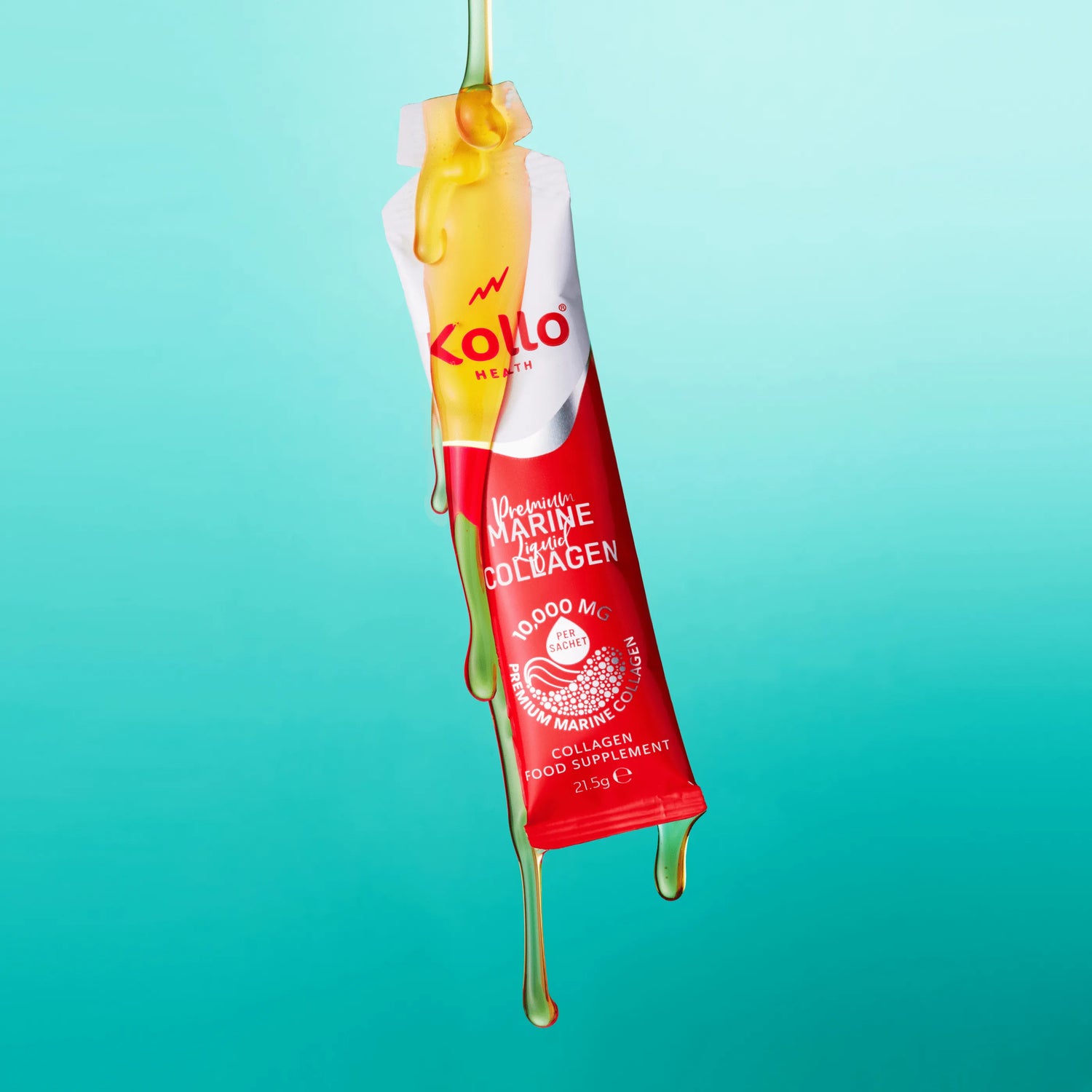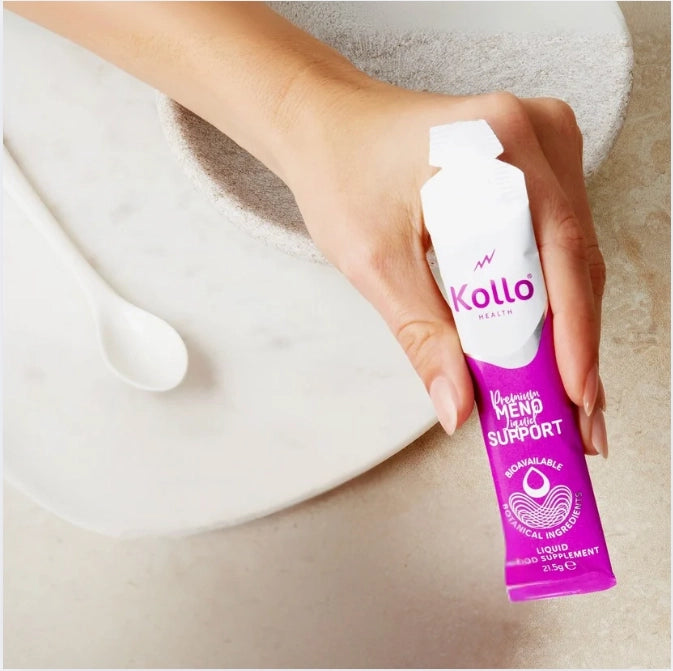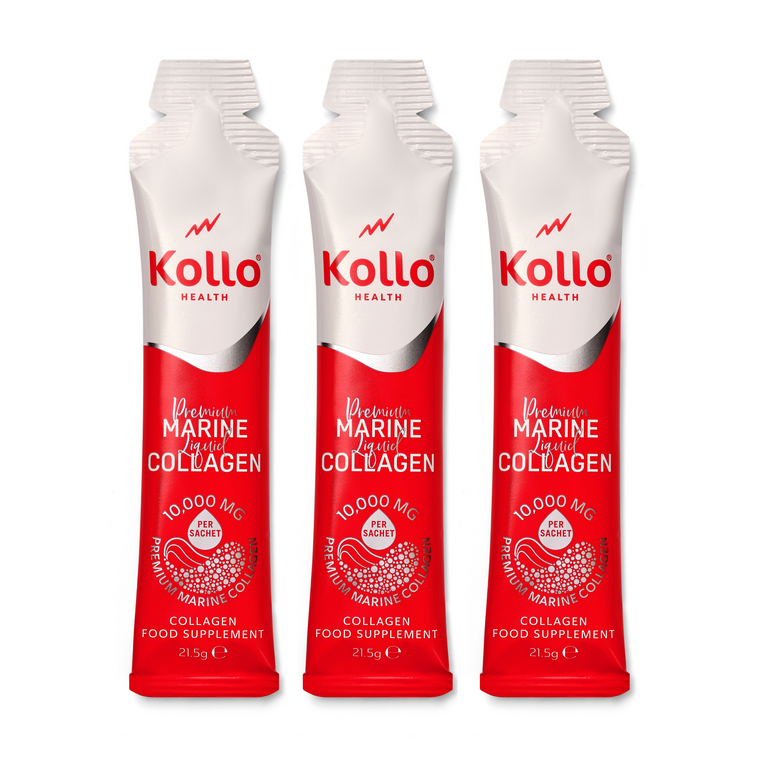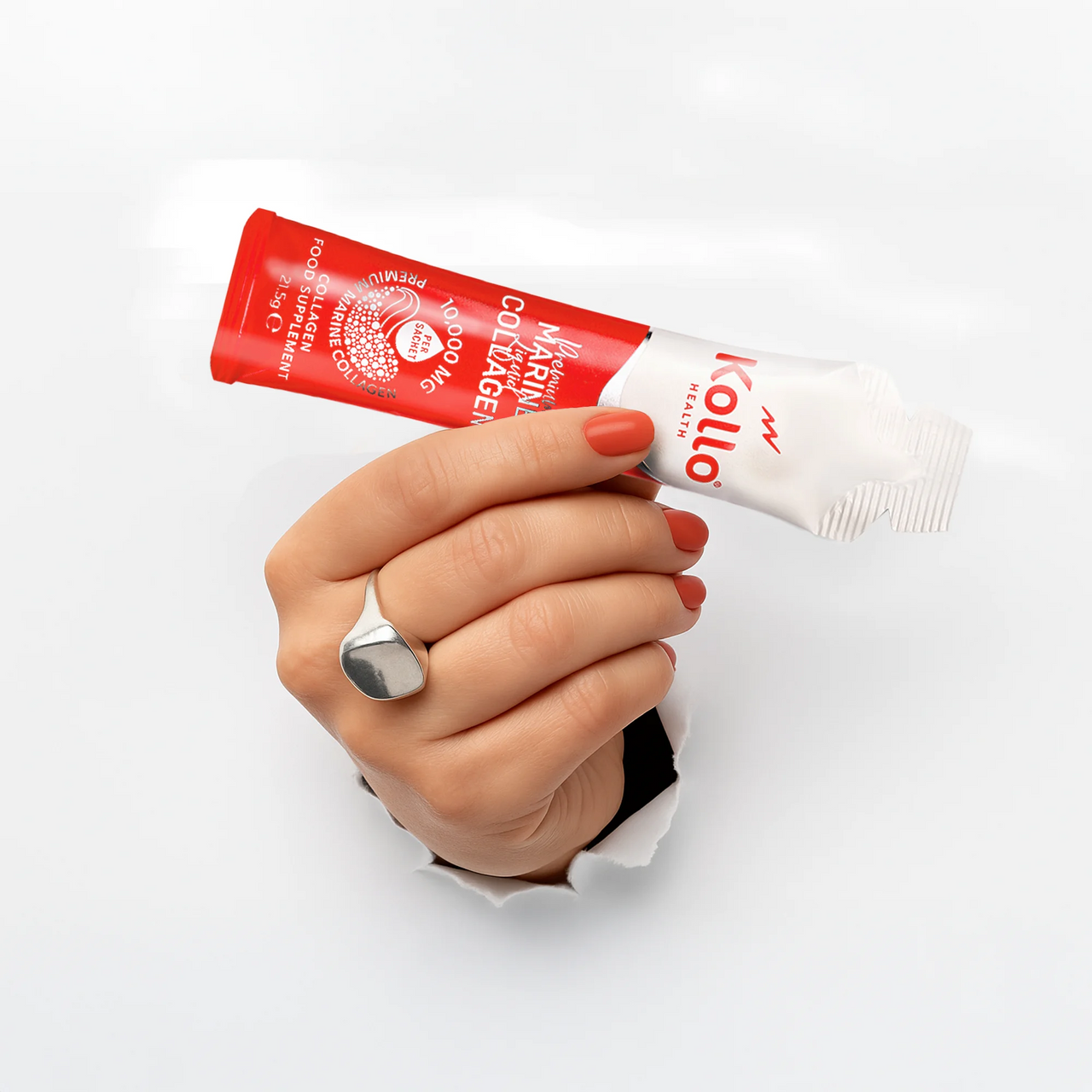Wrinkles fading, joints feeling like new, and hair and nails that gleam — sounds like a dream, right? That’s the promise behind collagen, a protein taking the wellness world by storm. But is collagen a true fountain of youth?
Kollo Health is here to help you navigate the facts and fiction surrounding collagen. We’ll explore five things you need to know when supplementing with collagen. Whether you're curious about its impact on your skin or simply want to understand the true potential of collagen, keep reading for the key takeaways!
Your Body's Collagen Production
We're born with a generous supply of collagen — it's the glue that holds us together! This amazing protein acts as the body's internal scaffolding. It helps provide structure, support, and strength to our skin, bones, joints, muscles, and blood vessels. Think of it as the body's internal architect, ensuring everything stays firm and functions properly.
As we get older, collagen production slows down. This decline can lead to visible signs of ageing, like wrinkles and sagging skin. It also impacts joint health and weakens hair and nails. What can you do to stop this decline? While collagen supplements are a top answer, there are other steps you can take to slow the natural progression of time.
The most important action for your overall health is to maximise your body's collagen production and other vitamin intakes through diet and lifestyle. Adding collagen-rich foods to your daily meals can boost the benefits of what your body already does naturally.
Let's explore how dietary choices can provide the building blocks your body needs to synthesise collagen.
Dietary Support for Collagen Health
Collagen isn't only something your body manufactures. You actually get some of it through your diet. While you won't directly consume ready-made collagen, certain foods are rich in the amino acids your body uses to build it.
When you simmer animal bones for hours to make bone broth, it releases collagen. Also, fatty fish like salmon and tuna are great sources of collagen. Foods high in vitamin C are crucial for collagen production because they help your body convert the amino acids proline and lysine into collagen. Without enough vitamin C, your body can't form collagen properly.
That's why including vitamin C-rich foods like citrus fruits, red peppers, and other fruits and veggies is essential for supporting collagen synthesis. Additionally, egg whites contain high levels of proline, one of the amino acids necessary for collagen production, making them another valuable addition to your collagen-boosting diet.
These provide the building blocks your body needs for collagen synthesis. While dietary choices can support collagen production, other aspects of your diet and lifestyle can deplete your body's collagen stores.
Collagen Killers: Habits to Avoid
While collagen is our body's natural scaffolding, certain lifestyle choices accelerate its breakdown. Here are the top culprits to avoid:
- Sun Exposure: Harmful UV rays damage collagen fibers, leading to wrinkles. Make daily sunscreen (SPF 30+) a non-negotiable to protect your skin’s collagen stores.
- Smoking: Smoking depletes oxygen and nutrients needed for collagen production. It also damages collagen and elastin, accelerating wrinkles and slowing wound healing.
- Sugar and Refined Carbs: Excess sugar binds to proteins (glycation), weakening collagen and making it stiff and brittle. To protect your collagen, opt for whole foods and limit sugary treats.
Minimising these habits can help your body maintain optimal collagen levels, promoting healthy skin, joints, and well-being.
Nutritional Support for Collagen

Collagen may be the building block, but it can't work its magic alone. It requires a team of essential vitamins and minerals to function at its best. Here are some key players:
- Vitamin C: This vitamin plays a vital role in converting amino acids into collagen. Without enough vitamin C, your body struggles to manufacture collagen. When this happens, it leads to potential issues with skin health, wound healing, and joint function. Citrus fruits, bell peppers, berries, and leafy greens are all excellent sources of vitamin C.
- Zinc: Zinc acts as a co-factor for enzymes crucial for collagen synthesis. A zinc deficiency can hinder collagen production. Oysters, lean red meat, poultry, pumpkin seeds, and chickpeas are all good sources of zinc.
- Vitamin A: This vitamin plays a role in cell communication, which is essential for collagen production. It also helps regulate the activity of enzymes involved in collagen synthesis. Deficiency in vitamin A can lead to dry, flaky skin and hinder collagen production. Sweet potatoes, carrots, leafy greens, and eggs are all good sources of vitamin A.
- Copper: This mineral is another key player in collagen synthesis. It helps stabilize the collagen structure and is crucial for strength and elasticity. Deficiency in copper can lead to fragile skin, weak connective tissues, and impaired wound healing. Shellfish, nuts, seeds, and whole grains are good sources of copper.
With this information, you can support your body's natural collagen production. You'll be helping to promote optimal collagen function for healthy skin, joints, and overall well-being.
Selecting the Optimal Collagen Supplement
While dietary and lifestyle changes support your body’s natural collagen production, sometimes a more direct approach is needed. Collagen supplements become essential when natural methods fall short. With numerous options available, choosing the right one can feel overwhelming.
Different collagen types offer varying benefits. Type 1 supports skin health, Type 2 benefits joints, and Type 3 helps with both. When it’s time to buy your next collagen product, think about your primary concern or opt for a blend that contains more than one type.
Collagen supplements come from various sources, including animals (bovine, marine) and plants. However, marine collagen, like the one from Kollo Health, stands out as the best source due to its exceptional bioavailability, which means how much and quickly a substance gets absorbed into the body, and its Type 1 collagen richness.
Typical supplement forms include powders, capsules, and liquids. Powders offer versatility but may require mixing, while capsules are convenient but could have lower dosages. Liquids are pre-mixed for effortless consumption.
By considering these factors, you can confidently navigate the world of collagen supplements and choose the one that best fits your needs.
Conclusion

Is collagen a magic bullet for ageing? Like most things in health, the answer is varied. While collagen offers a range of potential benefits, managing expectations is essential. A balanced diet rich in nutrients and a healthy lifestyle that minimises collagen breakdown are crucial foundations.
Supplements like Kollo Health's liquid marine collagen provide an extra boost. Whether you incorporate collagen into your routine or not, this knowledge empowers you to make informed decisions for your overall well-being.
Ready to explore how Kollo Health's liquid marine collagen can support your wellness journey? Visit our website to learn more about the different types and benefits, and start today.







